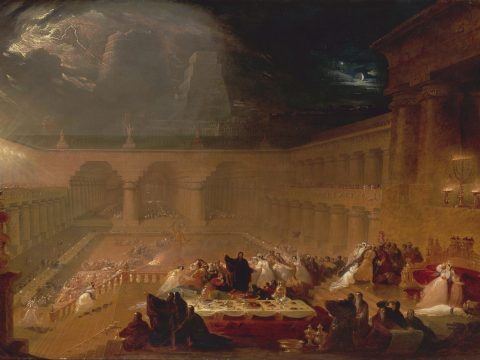
If God spared not the angels, when they grew proud, will he spare you, who are but dust and rottenness?
Augustine
Consider where Christ came from. He came from heaven, and from the richest place in heaven, his Father’s bosom, that hive of sweetness.
Consider for whom Christ came. Was it to his friends? No! He came for sinful man! Man who had defaced his image, and abused his love; man who was turned rebel! Yet he came to man, resolving to conquer our obstinacy with his kindness. If he would come to any, why not to the angels which fell? “He took not on him the nature of angels.” Heb 2:16. The angels are of a more noble origin, more intelligent creatures, more able for service! But behold the love of Christ—he did not come to the fallen angels—but to sinful mankind! Among the several wonders of the magnet, is that it will not draw gold or pearl—but despising these, it draws the iron to it, one of the most inferior metals. Just so, Christ leaves angels, those noble spirits, the gold and the pearl—and comes to poor sinful man, and draws him into his embraces!
Consider in what manner he came. He came not in the majesty of a king, attended with his royal retinue—but he came poor; not like the heir of heaven—but like one of an inferior descent. Consider the place he was born in, was poor; not the royal city Jerusalem—but Bethlehem, a poor obscure place. A feeding trough was his cradle, the cobwebs were his curtains, the beasts were his companions; he descended of poor parents. One would have thought, if Christ would have come into the world, he would have made choice of some queen or personage of honor to have descended from; but he comes of lowly obscure parents, for that they were poor appears by their offering. “A pair of turtle-doves,” which was the usual offering of the poor. Lev 12:8. Christ was so poor, that when he needed money, he had to work a miracle to obtain it. Matt 17:27. When he died he made no will. He came into the world poor.
Consider why he came. That he might take our flesh, and redeem us; that he might instate us into a kingdom. He was poor—that he might make us rich. 2 Cor 8:8. He was born of a virgin—that we might be born of God. He took our flesh—that he might give us his Spirit. He lay in the manger—that we might lie in paradise. He came down from heaven—that he might bring us to heaven. And what was all this but love? If our hearts are not rocks, this love of Christ should affect us. Behold love which passes knowledge! “May you experience the love of Christ, though it is so great you will never fully understand it!” Ephesians 3:19
A further degree of Christ’s humility was, that he not only was made flesh—but in the likeness of sinful flesh. “God made him who had no sin—to be sin for us!” 2 Corinthians 5:21. He was like a sinner; he had all sin laid upon him—but no sin lived in him. “He was numbered among transgressors.” Isa 53:12. He who was numbered among the persons of the Trinity, is said “to bear the sins of many.” Heb 9:28. Now, this was the lowest degree of Christ’s humiliation; for Christ to be reputed as a sinner, was the greatest pattern of humility. That Christ, who would not endure sin in the angels, should himself endure to have sin imputed to him, is the most amazing humility that ever was!
From all this, learn to be humble. Do you see Christ humbling himself, and are you proud? It is the humble saint, who is Christ’s picture. Christians, do not be proud of your fine feathers. Have you an estate? Do not be proud. The earth you tread on, is richer than you. It has mines of gold and silver in its depths. Have you beauty? Do not be proud. It is but air mingled with dirt. Have you skill and abilities? Be humble. Lucifer has more knowledge than you. Have you grace? Be humble. It is not of your own making—it was given to you by God. Would it not folly, to be proud of a ring that is merely lent to you? “What makes you better than anyone else? What do you have that God hasn’t given you? And if all you have is from God, why boast as though you have accomplished something on your own?” 1 Corinthians 4:7. You have more sin than grace, more spots than beauty. Oh look on Christ, this rare pattern of humility—and be humbled! It is a sad sight, to see God humbling himself and man exalting himself; to see a humble Savior and a proud sinner. God hates the very semblance of pride!
Behold here a sacred riddle or paradox—”God manifest in the flesh.” That man should be made in God’s image was a wonder—but that God should be made in man’s image is a greater wonder. That the Ancient of Days should be born, that he who thunders in the heavens should cry in the cradle; that he who rules the stars should suck the breast; that a virgin should conceive; that Christ should be made of a woman, and of that woman which he himself made; that the branch should bear the vine; that the mother should be younger than the child she bore, and the child in the womb bigger than the mother; that the human nature should not be God—yet one with God; this is the most astonishing miracle! Christ taking flesh is a mystery we shall never fully understand until we come to heaven, when our light shall be clear, as well as our love perfect.
Thomas Watson. A Body of Divinity.



